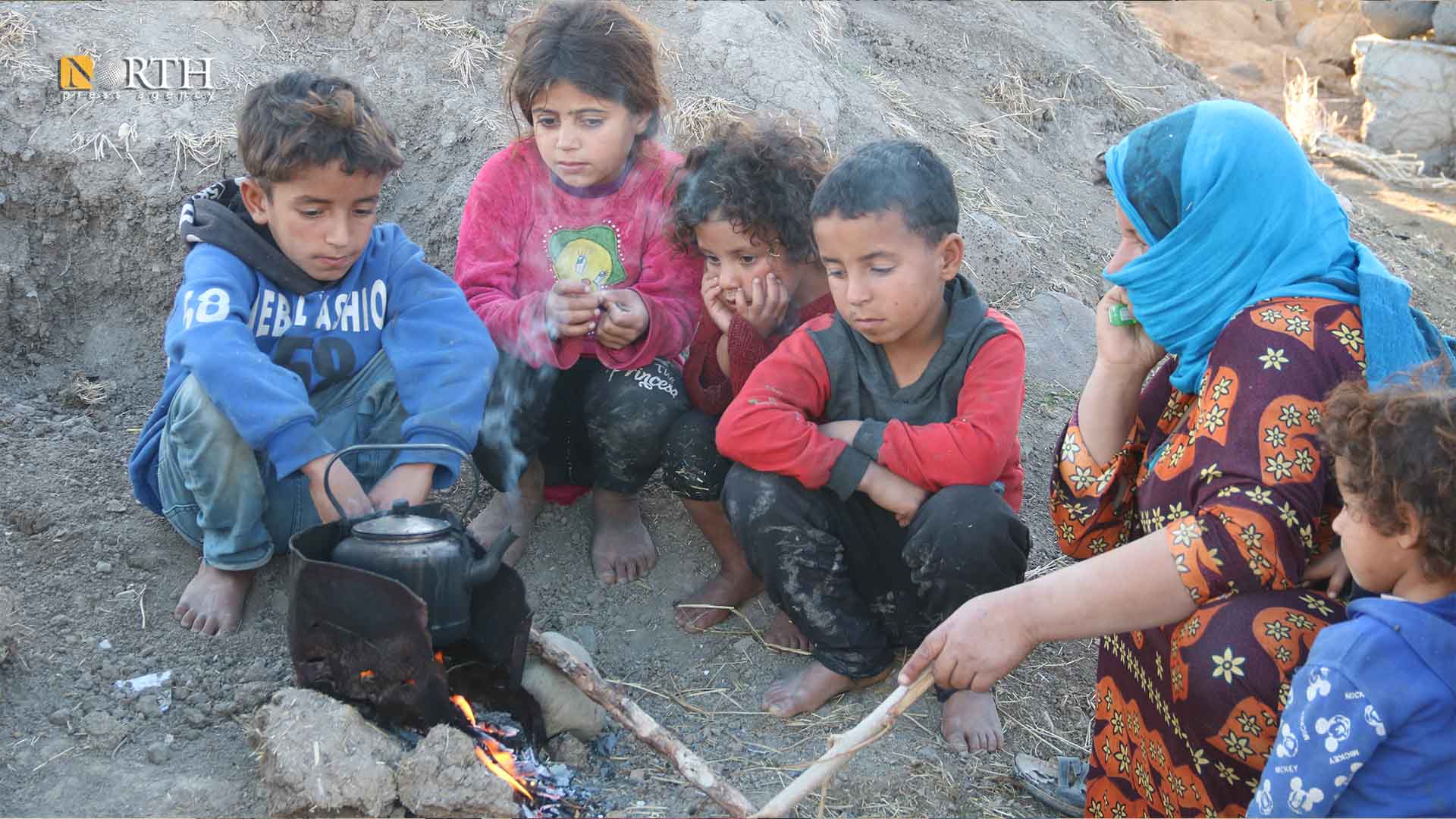Families who came from rural areas and cities in northeastern Syria to the city of Derik and its countryside in the far northeast of Syria, looking for work, are facing difficulties in securing their essential living needs in light of the high prices for basic materials, medicine and house rents.
In previous years, these families had moved from different regions of northeastern Syria, to work in agriculture and raising livestock in Derik and its countryside, as a result of the instability in their towns and cities.
Seeking stability
Relative stability, and an availability of water and electricity in Derik attracted families from other Syrian areas, especially those who were living in areas that witnessed battles and military operations due to the control of the Islamic State (ISIS) or Turkey and the armed opposition groups it backs.
Semalka border crossing also played a role in settling those families, as some people work there, or in the countryside where conditions for agriculture and livestock are good.
Ahmad Mulla, 45, who comes from the town of Tel Hamis, south of Qamishli, moved during the battles in his town in 2015 to the city of Ras al-Ayn to work in raising livestock there.
However, during the Turkish offensive in the Ras al-Ayn region in 2019, he was forced to leave for the village of Ayn Bazouk, north of Derik, to work as a shepherd.
Salary does not meet the basic needs
Mulla gets 100,000 Syrian pounds for his current work, and he has 17 members in his family, including 11 children and his mother, who suffers from several diseases and he is unable to provide her the necessary medical treatment she needs.
Mulla also finds it difficult to secure heating oil during the winter for his family, explaining “my salary does not meet the basic needs of food and medicine.”
This lack of oil for heating, forces his barefoot children to gather around a fire in an attempt to keep warm, while his wife must use animal waste to cook and heat their home, exposing the family to smoke and fumes that damage their health.
Childcare needs
Like Ahmad’s family, the 30-year-old Khawla Muhammad from the village of Siha in the Qamishli countryside, lives with her family in two rooms built over a warehouse and an old animal barn on the outskirts of Derik.
About six months ago, Muhammad’s family moved from the village of Siha to Derik looking for work, and now they pay 20,000 Syrian pounds to live in a rented house.
Muhammad said that the owner of the house asked them to vacate the house, so that a new building could be constructed in its place.
The family suffers from the odors emanating from the barn and warehouse that contains stored agricultural items, in addition to the spread of snakes and insects in the summer.
Because the house is built over the barn, Khawla sent three of her children to her mother in the village, fearing they would fall from the building, which lacked the appropriate safety conditions.
“We do not have a TV, a refrigerator, gas, a heater, or a heating oil. Sometimes, we cook on a kerosene stove, while at other times on a wood stove,” she added.
The family was unable to send three of their children to school due to their poor situation.
No aid from NGOs
Nearby sits her husband, Sultan Muhammad, 35, who is unable to meet the requirements of his family of eight, despite his work as a day laborer at the Semalka border crossing.
He said that he cannot afford to rent a suitable house in the city by relying on his daily wage of 4,000 pounds, as it is not enough to buy his daily needs of bread, sugar and tea because of the high prices.
Relief organizations and charities did not provide any services or assistance to the family, according to Muhammad.
Muhammad Abdelrahim, co-chair of the Derik region, said that the families who came from other areas to Derik are not considered IDPs, because they have homes, villages and lands, and their areas are not occupied, such as Ras al-Ayn and other areas of displacement.
He pointed out that the IDPs in Derik were sheltered in Nowruz camp, east of the city, where tents were distributed to them and aid was provided by relief organizations.
However, he considered that those who came from the liberated areas had the option to search for better job opportunities even in their villages and towns.
This article was edited by The Syrian Observer. The Syrian Observer has not verified the content of this story. Responsibility for the information and views set out in this article lies entirely with the author.


